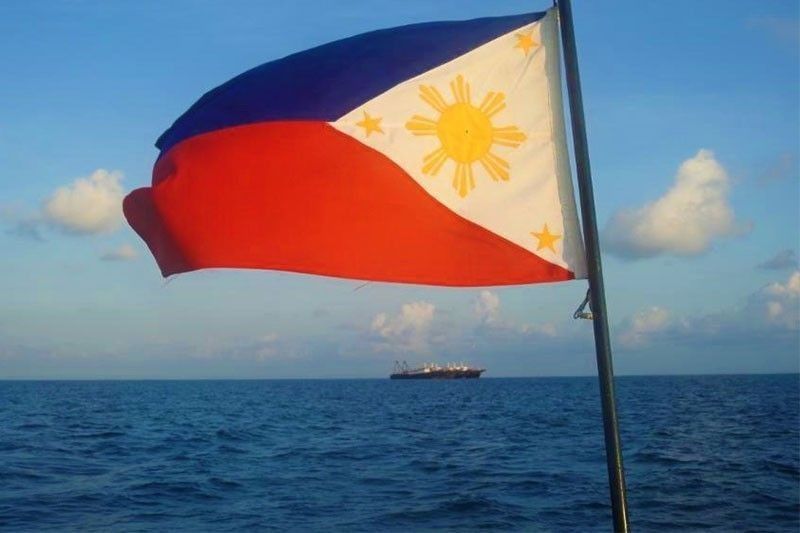'Stronger military, alliances needed to complement talks on West Philippine Sea'

MANILA, Philippines — While diplomatic talks over the issues at the West Philippine Sea are needed, improving the country’s military capability would also be crucial to discourage aggression in the disputed waters, analysts said.
In a forum hosted by think tank Stratbase ADR Institute on Tuesday, Renato de Castro proposed allocating 2% more of the country’s gross domestic product for the modernization program of the Armed Forces of the Philippines.
"We need to back up our diplomacy with credible military capability. Many diplomats know for a fact that diplomacy is simply the velvet glove that covers the iron fist of the military capability," said de Castro, professor at De La Salle University and trustee and program convenor at the think-tank.
He also said that a “well-thought, comprehensive, and formal” National Security Strategy that takes into account the 2016 Arbitral Ruling on the South China Sea dispute would help the new administration in dealing with the issue, with National Security Adviser Clarita Carlos not treating the ruling as "a piece of paper."
Carlos previously said that President Ferdinand Marcos Jr. has told her in discussions that the Philippines plans to “critically engage” with China on the maritime dispute.
The country marked the sixth anniversary of the historic Hague ruling, which invalidated China’s claims on the disputed waters and instead provided that it is within the exclusive economic zone (EEZ) and continental shelf of the Philippines.
However, since the 2016 arbitral ruling, Manila has filed over 200 diplomatic protests as Beijing refuses to recognize the award — still implementing fishing bans that include Philippine waters and shadowing Philippine boats in the West Philippine Sea.
READ: 'Waste paper': China still refuses to recognize 5-year-old arbitration award
Retired admiral Rommel Jude Ong said that pressing issues in the West Philippine Sea include the Ayungin Shoal and the establishment of a "safe space" for economic activities within the disputed waters.
"This includes the conduct of exploration of service contract areas and for our fishermen to go back to sea," said Ong, a professor of praxis at the Ateneo School of Government and executive director at think tank Security Reform Initiative.
READ: Philippines files diplomatic protest vs China for Ayungin Shoal incidents
‘Prepared to deter aggression’
Earlier in the forum, former Foreign Affairs Secretary Albert del Rosario also noted that the AFP’s modernization efforts “will continue to build a more reliable and credible” military arm that is capable of strengthening our territorial claims.
He mentioned that the country recently concluded talks on the Subic Bay Shipyard with US-based financial company Cerberus Capital Management, which is now operating the shipyard with the navies of the US and the Philippines.
With the shipyard close to the disputed waters, del Rosario said, the negotiation “would help our defense capabilities in our territorial waters.”
The former foreign affairs secretary also noted that the Philippines could “leverage existing strategic partnerships” and build alliances with other states to defend our territory, adding that this can help the country prevent maritime terrorism and illegal activities, which also include keeping safe the natural resources of the country’s exclusive economic zone.
"We remain optimistic that the best way forward is still diplomacy. Nevertheless, we are prepared to deter aggression," del Rosario said.
Strengthening alliances
Meanwhile, Professor de Castro added that the Philippines can also do more with other security allies and partners.
"Diplomacy without military capability would simply not work in the real world," he said, adding that there might be a need for "[a] countervailing coalition of other major powers designed to thwart or impede China’s specific policies of maritime expansion.”
This includes strengthening partnerships with the US, Japan, Korea, and Australia as well as with the Quadrilateral Security Dialogue and the AUKUS.
READ: US backs Philippines on WPS, warns that Washington will back Manila should there be armed attacks
Foreign Affairs Secretary Enrique Manalo, in a statement to commemorate the 6th anniversary of the ruling, said the Philippines “welcomes the support of a growing list of countries for the award.”
However, de Castro also proposed that Marcos Jr.’s administration continue how the Duterte administration was engaging with Beijng — go on to having bilateral agreements and also increase trade with China "in exchange for Chinese support for Philippine development."
Marcos Jr. recently said that he plans to “increase the scope” of bilateral talks with China to include relations in culture, education, and the military.
READ: Like Duterte, Marcos Jr. says to 'increase scope' of ties with China beyond sea dispute
“It can mean trade, it can mean investment,” ADR Institute president Victor Andres Manhit said about Marcos Jr.’s recent statement.
"But for me, I’d like it to go beyond South China Sea because the more you analyze it, there’s really no trade with China. We import a lot from China."
- Latest
- Trending

































